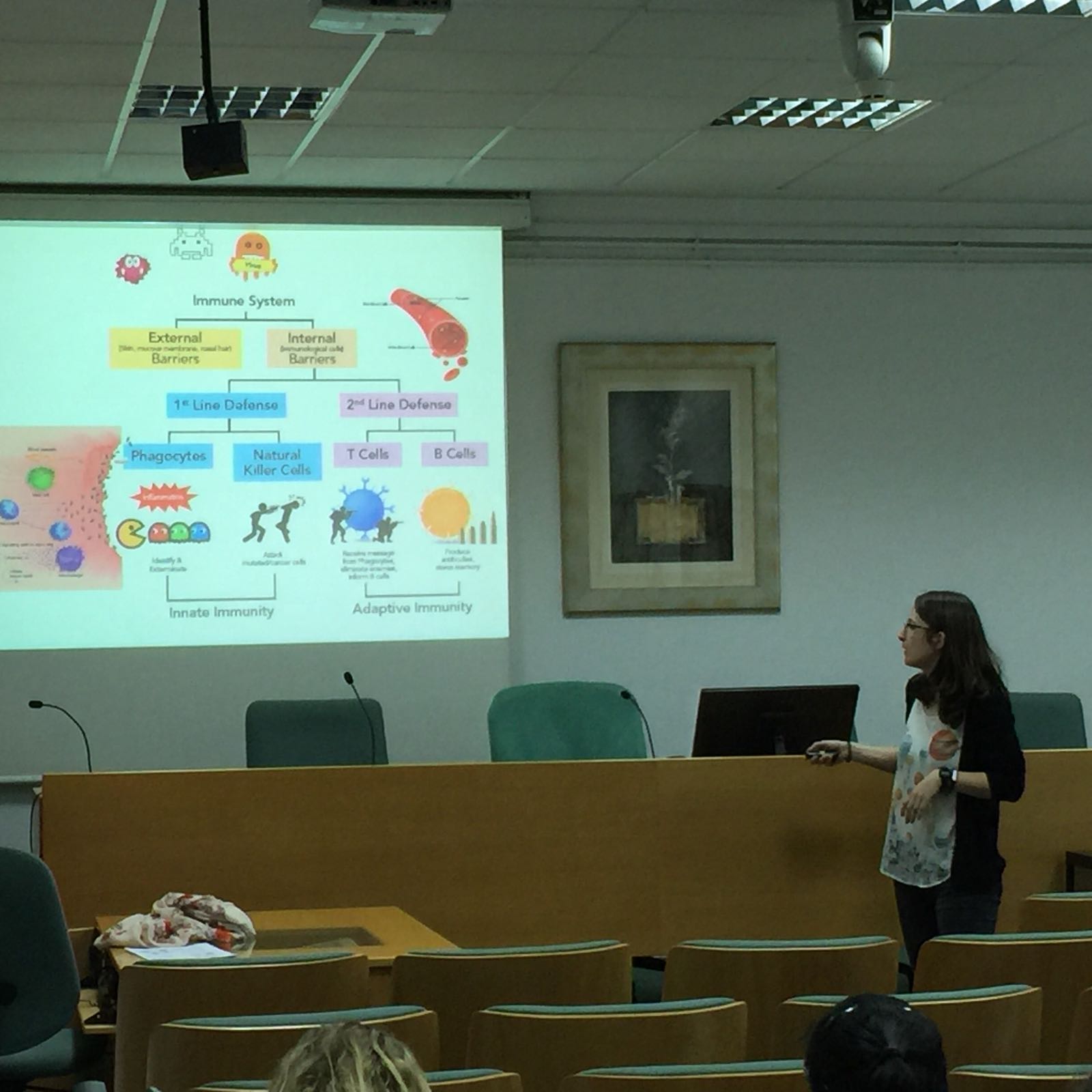
Ms. Carmen Ferrer Pérez is a psychologist, MEC grantee and Predoctoral Fellow for the Research Unit in Psychobiology of Drug Abuse, Department of Psychobiology, Universitat de València. Graduate of the DIPTA Master’s Degree.
During her intervention, she presented the research results she obtained about the role of neuroinflammation in addiction. Hers is a pioneering research line in the field of drug abuse.
She explained that our immune system is a defence mechanism against infectious and other unknown organisms. This system includes a series of barriers which prevent these pathogen organisms from entering, as well as a series of cells capable of responding if these barriers get broken. She also pointed out that our brain is an immunologically privileged organ because it owns microglia, a type of glial cells of the immune system working as phagocytes against germs and damaged tissue. Microglia react to pathogen-associated molecular patterns and recognise them as germs (PAMP), initiating an inflammatory response to them. Alcohol, cocaine and other xenobiotic drugs have a chemical structure which has been synthetized and are not naturally present in our organism. They can activate microglia when detected as PAMPs.
This activation of microglia caused by drugs initiates an immune-inflammatory response in the brain. If this happens repeatedly, it may prompt damage and neuronal cell death. She highlighted that this inflammatory response caused by drugs explains the cognitive and behavioural worsening observed after drug abuse.
Stress also plays a crucial role in this process. Immune cells have receptors to intercept stress hormones. In consequence, adverse events activating the hypothalamic–pituitary–adrenal axis will also alter the activity carried out by the immune system. Currently, it has been determined that social stress is capable of activating the inflammatory mechanisms of microglia in the brain. Consequently, alterations may appear in several brain circuits. The reinforcement system can be affected by this inflammatory state of the brain, registering a higher sensibility to the reinforcing effects of drugs after an inflammatory process.
Therefore, neuroinflammation plays a double role in disorders caused by drug abuse: it helps us to explain a higher vulnerability present in some subjects and also the deleterious consequences observed after drug abuse.
Links:






